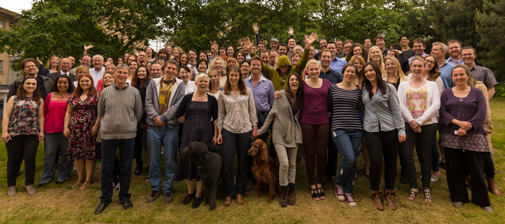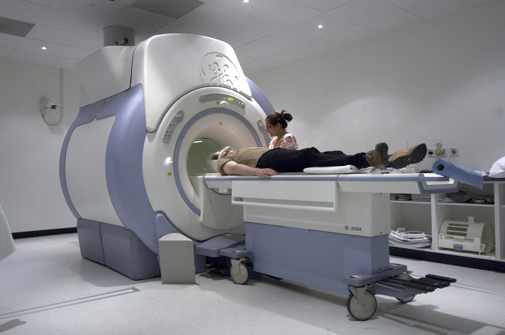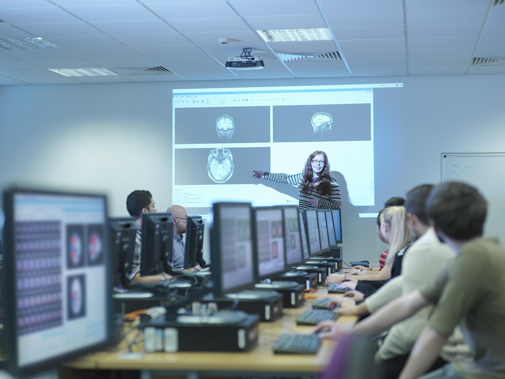
History of the Department
Each University Department of Psychology is unique. The imprint of the ethos, enthusiasms and research expertise of the staff is transferred to the students: it is the individuals that make up a University department who collectively decide on what is taught and examined, which topics, techniques and projects students will experience. At every University that teaches Psychology the blend is different, and the knowledge a department generates - whether in the form of new scientific discoveries and inventions or the in achievements of its graduates - absorbs that distinctive “flavour”. So what is York’s flavour, and where does it come from?
 A snapshot of the staff and PhD students of the Department of Psychology, University of York, Summer, 2015.
A snapshot of the staff and PhD students of the Department of Psychology, University of York, Summer, 2015.
In 1974 Peter Venables came to York from Birkbeck College London and was charged with the responsibility of setting up a new Psychology Department from scratch. He appointed the first lecturers and established the department in its “temporary” accommodation in Wentworth Gradaute College. The first students were interviewed for places on the course beginning in October 1975.
.jpg)
Founding Head of Department, Professor Peter Venables
From the outset, the emphasis in the Department was on "experimental" psychology, in the widest sense of that term. That is, Venables, and the staff he recruited, shared the belief (then far from universal) that Psychology as a discipline was most likely to make progress by concentrating on issues that were amenable to scientific investigation and on theories that could be subjected to direct test. (1)-500x363.jpg) Faculty of the Department in 1988. Front Row from left to right: Maureen Cox, Derek Roger, Charles Hulme, Peter Venables, Peter Bull, Peter Bailey. Back row from left to right: Nick Hammond, Geoff Hall, Peter Thompson, Euan Macphail, Andrew Monk.
Faculty of the Department in 1988. Front Row from left to right: Maureen Cox, Derek Roger, Charles Hulme, Peter Venables, Peter Bull, Peter Bailey. Back row from left to right: Nick Hammond, Geoff Hall, Peter Thompson, Euan Macphail, Andrew Monk.
This approach led to the early appointment of staff members specializing in animal learning, perception (vision and audition), and cognition (memory and mechanisms of information processing generally), in which experimental approaches were already dominant. More distinctively, at York specialists in other areas such as social, personality, and developmental psychology, were as committed to a rigorously scientific approach as their colleagues. The department grew only gradually, but its reputation for excellent science and teaching solidified rapidly.

In the late 1990s the department found its current, purpose built, home on the Southern edge of the Heslington East Campus, adjacent to James College and the Sports Centre. Phase 1 of the building (A-Block) was completed in 1996 and Phase 2 a couple of years later (B-Block). The buildings provide an ideal environment for study and research in psychology, with specialist laboratories, offices and well-equipped computer rooms, lecture theatre and teaching rooms fitted to the particular requirements of the discipline all under one roof.
By the beginning of the 21st century the department had established additional strengths in the applied science of language and memory. Maggie Snowling and Charles Hulme led a highly successful research group that helped define the modern understanding of reading, language learning and developmental disorders such as dyslexia. Both Alan Baddeley and Graham Hitch, who together had developed the concept of Working Memory, moved to York and were joined by Sue Gathercole who showed how an understanding of such cognitive mechanisms could be applied to developmental disorders and to education.
The department has always placed an emphasis on the biological basis of psychology and behaviour. Indeed, founding Head of Department Peter Venables, still an award-winning and active researcher in his 90s, helped pioneer of the application of physiological measures to psychological questions foreshadowing the growth of cognitive neuroscience as a discipline. Another early recruit, Geoff Hall, co-developed a leading theory of learning by studying animal behaviour, building on the famous tradition of Pavlov. Later, highly influential work in neuropsychology was carried out by Andy Young and Andy Ellis. It was on their advice that the University made a timely investment in the York Neuroimaging Centre (YNiC) which opened in 2005. This centre provided the University with Magnetic resonance Imaging (MRI) and Magnetoencephalography (MEG) equipment together with the supporting computing power needed to analyse the huge volumes of data these techniques generate. Researchers at York could now investigate the brain in action as thoughts, perceptions, memories and decisions unfolded.
 One of two 3T MRI scanners at the York Neuroimaging Centre. It is also equipped with an MEG scanner and TMS laboratory.
One of two 3T MRI scanners at the York Neuroimaging Centre. It is also equipped with an MEG scanner and TMS laboratory.
The arrival of YNiC was linked to a major expansion in which the undergraduate intake has increased to over 200 a year and new staff appointments have seen the growth of research groups in neuroscience, neuropsychology, cognition and communication, perception and action, developmental psychology and neuroscience, social interaction and forensic psychology. Our research is increasingly characterised by links between these areas, and there is a neuroscientific flavour to many collaborations. Nonetheless, the Department has continued to grow in line with the fundamental principles established when it was created, and has benefited greatly from this continuity in strategic direction.
The open plan area at YNiC provides a base for neuroimaging researchers and for PhD, MSc and MPsych students running hands-on projects using neuroimaging techniques.
As our numbers have grown, our physical space has also expanded. The Henry Wellcome Building for Psychology (C-Block) was opened in 2004, our lecture theatre was enlarged and upgraded in 2013, and a further extension, which will house some of our research staff and improved Sleep Labs is now underway. We have also extended the range of courses we offer. We added a range of Masters level courses in specialist areas Developmental Disorders and Clinical Practice, Cognitive Neuroscience, Developmental Cognitive Neuroscience. In 2015/16 we introduced a distinctive and already popular undergraduate degree course (the 4-year MSci).

